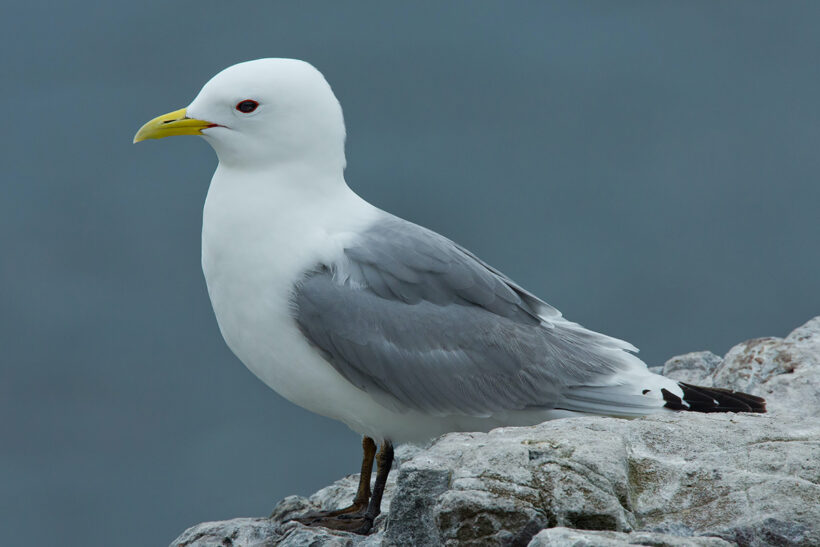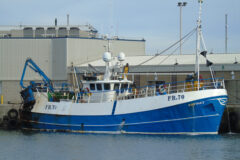The EU has requested the establishment of an arbitration tribunal to rule on whether the UK’s ban on sandeel fishing is compatible with the Brexit Trade and Co-operation Agreement (TCA).
The move follows pressure from the Danish industrial fishery and allied interests, who have called for trade and market sanctions against the UK if there is no resolution of the dispute – and for EU fisheries and trade policy to be ‘actively linked’.
The matter is being handled in the UK at the highest level of government, the Cabinet Office.
The UK banned fishing for sandeels in the English waters of the North Sea and in all Scottish waters on 26 March this year, with the stated aim of protecting an important food source for seabirds. The UK has not allocated any sandeel quota to UK vessels for three years, but it is a big fishery for the Danish industrial fleet, and the UK ban prevents EU vessels from operating in the fishery in UK waters.
In April 2024, the EU asked for consultations with the UK to find a mutually agreeable solution, and formally initiated proceedings under the TCA dispute settlement mechanism.
The consultations concluded without reaching a solution, to which the EU says it remains open. The establishment of an arbitration tribunal is the next step in the dispute settlement procedure.
The Commission said: “When it comes to managing shared resources, all decisions taken by the EU or the UK must be non-discriminatory, proportionate to the objectives and based on the best available scientific evidence.”
Danish fishermen’s organisations welcomed the Commission’s move to seek arbitration, and called for trade and market sanctions against the UK if the matter is not resolved.
The Danish Fishermen’s Association (Danmarks Fiskeriforening), Danish POs and the fishmeal industry said in a statement that it was ‘absolutely crucial’ that Danish fishermen have access to sandeels in British waters.
They said the ban was ‘a clear breach’ of the Brexit TCA, under which ‘Danish fishermen paid dearly to continue to have access to fishing in British waters’.
The Danes say the UK justification for the ban – that sandeels are important food for some bird species – is ‘thin’, noting that ICES is also sceptical about the basis for ban. They also claim that the ban is discriminatory, as it ‘only really affects EU fishermen’.
“Sandeel fishing is a very important part of Danish fishing, and Danish fishermen have 96% of the EU’s sandeel quota in the North Sea,” said the Danish organisations.
“The lack of access to British waters has cost the Danish fishermen dearly, because it has meant that they have been far from utilising the entire quota that could otherwise be fished in the area.”
They say the ban is estimated to cost Danish fishermen more than 150m Danish kroner (£16.8m) annually, and that loss of revenue in the fishing and processing industries together is estimated to be more than 600m Danish kroner (£68m).
They also claim the ban impacts the aquaculture industry in the EU and in Scotland, which relies on fishmeal and oil produced from sandeels. Moreover, they say, the importance of a food base for seabirds is already an integral part of the ecosystem-based management of sandeels.
After approaching Defra and the Foreign and Commonwealth Office for comment, Fishing News was referred to the Cabinet Office. A spokesperson said it was handling the majority of queries relating to the UK’s relationship with the EU as the minister for EU relations, Nick Thomas-Symonds, is in that department.
The spokesperson said: “The legal process on sandeels is subject to strict confidentiality rules, and we are not going to offer a running commentary on that.”
They added that the government remains committed to protecting the marine environment, and took the decision in March to close UK North Sea waters to all sandeel fishing to protect seabirds, with the closure applying equally to UK and non-UK vessels.
They said the decision was taken to safeguard vulnerable seabird populations, including species like kittiwakes which are at ‘serious risk’, and builds on domestic measures already in place, as no quota had been allocated to UK vessels to fish sandeels for the previous three years.
This story was taken from the latest issue of Fishing News. For more up-to-date and in-depth reports on the UK and Irish commercial fishing sector, subscribe to Fishing News here or buy the latest single issue for just £3.50 here.
Sign up to Fishing News’ FREE e-newsletter here.






